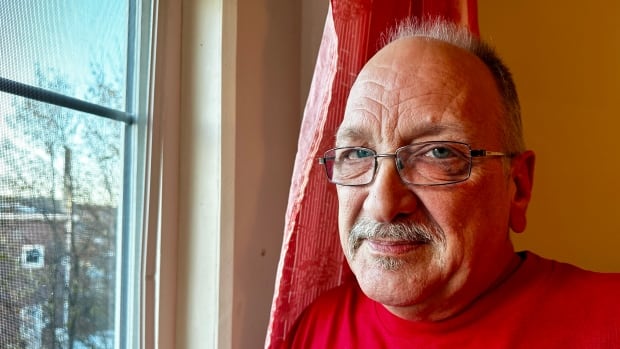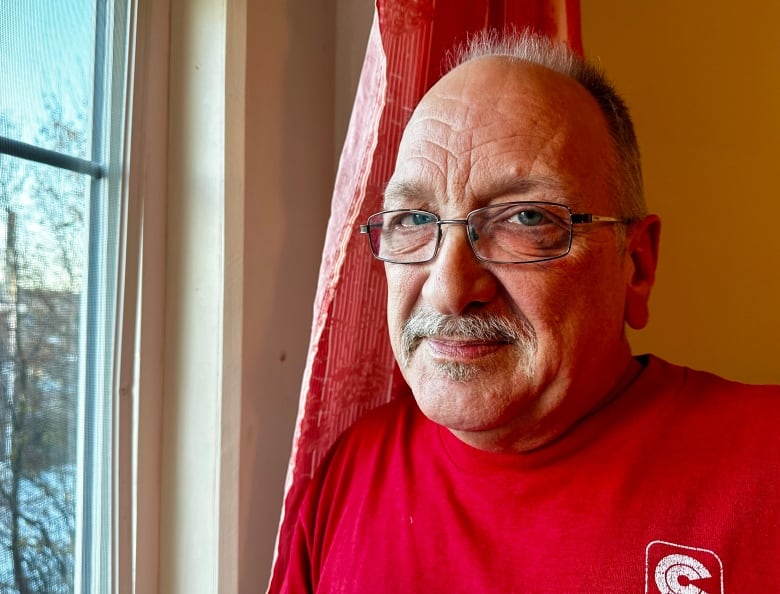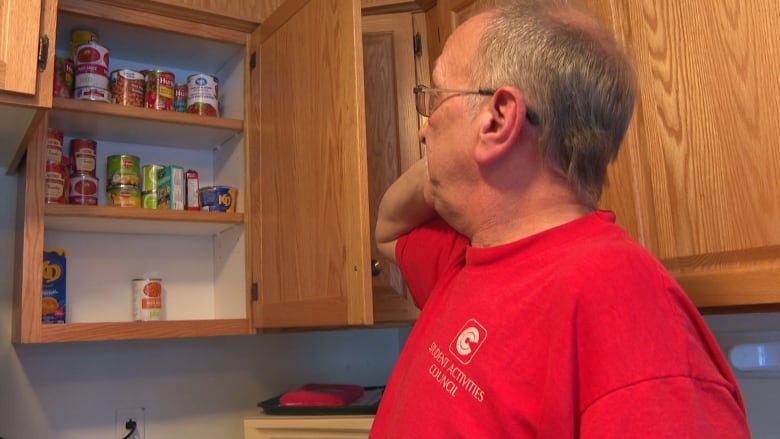

CBC N.L. has launched its annual campaign in support of the Community Food Sharing Association and local food banks ahead of Feed N.L. Day on Dec. 15. Visit cbc.ca/bekind for more information and help make the holidays brighter for those in need.
Twice a month, Stephen Hillier gets food hampers delivered to the front doorstep of his home in St. John’s.
One is a “regular” hamper, filled with items like milk, sugar, butter and bread. The other has fewer items — it’s for emergencies.
It’s just enough to survive, says Hillier.
He never thought his life would turn out this way.
“It’s not easy, put it that way,” said Hillier. “It is depressing. [I] gets depressed over it, but I keeps looking at the positive side of it. Things is gonna change for the better, and someday it will.”
Fortunate for food delivery
Hillier turns 60 next summer, which means he qualifies for food hamper delivery services offered by non-profit organization Connections for Seniors.
The group’s food security program provides residents 55 years and older on the northeast Avalon Peninsula with food hampers and grocery shopping support.
When Hillier talks about the food delivery service, he can’t help but sigh and say, “Thank God.”
Originally from Jackson’s Arm in western Newfoundland, Hillier had to move to St. John’s in 2019 to be closer to hospitals and health-care services.
He previously worked as a home-care worker, helping people with disabilities. But he’s been battling a variety of health issues such as kidney stones and hypertension for around 10 years and had to leave his job due to illness in 2014.

Having to stop working got Hillier down, he said.
“It’s like losing something, meant something to you, a lot to you and stuff. My whole life changed due to that. Got me where I’m to today.”
The money from his job dried up within a couple of years, he says, as he had to pay out of pocket for his transportation to and from the west coast to St. John’s for medical appointments.
He now has mobility issues and relies on community organizations like Connections for Seniors, as well as neighbours, to help him pick up food and medications.
Featured VideoStephen Hillier’s health issues forced him to halt his beloved career as a home-care worker. Money is now so tight he can’t shop for all of his own groceries and is thankful for the food hampers from the non-profit Connections for Seniors.
He says he sometimes tries to buy items from the grocery store with the small amount of money he does have, but prices are too high. He wants to work again to support himself, but until then, he’s barely scraping to get by.
“I’m praying to God now everything comes back together and I can get back,” said Hillier. “I enjoyed my work. I enjoyed helping people. I really enjoyed that. I love my job helping people.”
Demand increases
Hillier isn’t alone in his struggle.
According to Food Banks Canada’s annual HungerCount report, which documents food bank usage in Canada, Newfoundland and Labrador has the highest percentage of seniors using food banks in the country. The province also leads the country in the rate of people ages 45 to 64 using food banks.
In mid-November, N.L.’s seniors’ advocate, Susan Walsh, released a report with recommendations for the provincial government to combat poverty for seniors.

She notes that while the province introduced food delivery programs during the height of the COVID-19 pandemic, those services disappeared when emergency funding dried up.
In her report, Walsh urged the government to implement a food delivery program immediately, as the situation will worsen in winter, with its impact on transportation.
“It has been noted that many are living on tea and toast because they cannot afford food, cannot get to food banks, cannot carry heavy grocery bags and are often too embarrassed to advocate on their own behalf,” reads the report.
Mohamed Abdallah, the executive director of Connections for Seniors, says demand for its food programs has tripled in the last two years, with about 800 seniors calling regularly for support.
“It is alarming,” said Abdallah. “Seniors are on a limited income, and they don’t have a choice.”
Hillier says he had a happy childhood and food was never difficult to come by. But the current situation — not just for himself, but for many others — is both frightening and saddening, he says.
He plays the guitar and loves music, and says he tries not to let his current predicament dampen his spirits. But it’s hard, he says, and he wants the government to do more to help people like him.
“I didn’t choose to be where I’m at today, so why should I be condemned because I’m here where I’m to in this situation?
“I can’t afford to live, I can’t get the food I need to, I’m struggling with that.”

Download our free CBC News app to sign up for push alerts for CBC Newfoundland and Labrador. Click here to visit our landing page.
